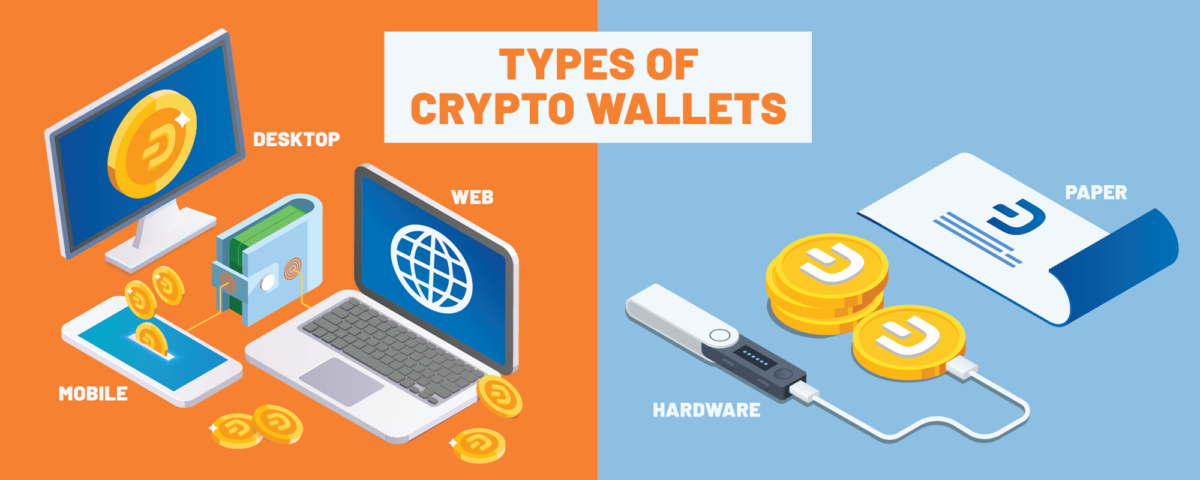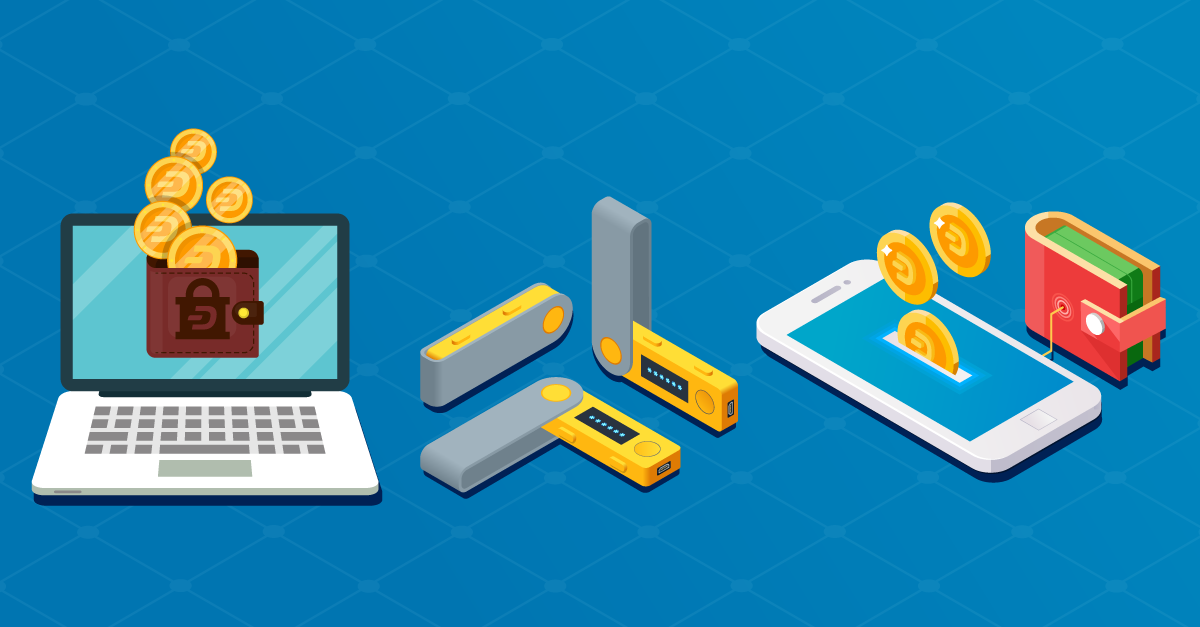Cryptocurrency wallets are essential for buying and selling crypto like Dash. You have a choice of hardware or software wallets, also known as hot or cold storage, with each option offering advantages (and of course disadvantages). To help you decide what your best options are for Dash, we outline the different types of crypto wallets and share insights on how they work best with Dash.
Hot Wallets
Simply defined, hot wallets are connected to the Internet.
Web-based Crypto Wallets
The easiest wallets to use are web-based wallets, like the ones hosted by cryptocurrency exchanges (e.g., Coinbase). The vendors hold and manage your security keys, which can be less secure than other options. Web wallets are best for beginners because they’re easy to set up and free to use. You access your web wallet through a web browser. As a result, you don’t need to download any specialized software. Some web wallets support multisig access where there are two keys — the site holds one and you hold another, giving you more control.
Mobile Wallets
A range of Dash mobile wallets are available, each with different features and security. These wallets run from mobile devices, such as your phone or tablet.
Desktop Wallets
A range of Dash desktop wallets are available, each with different features and security. With a desktop wallet, you download an application to your computer. The application generates a data file to hold your keys. You create a password to access the keys. Do not lose your password! Also, make a copy of your data file and back it up to another location — this enables you to access your coins when you are away from your computer or have a computer crash/theft.

Cold Wallets
Cold wallets are stored offline and don’t require internet connectivity. They are better suited for HODLers because they are more secure.
Paper Wallets
Paper wallets are (literally) pieces of paper that contain the data you need to access your cryptocurrency. It is a physically printed QR coded form wallet. If you lose or destroy the paper, you risk losing the crypto assets contained in your wallet.
Hardware Crypto Wallets
With a hardware wallet, your keys are saved on a physical device, not in software. Most hardware wallets work like a thumb drive — you connect to a computer or other device through a USB port. Hardware wallets use random number generators, encrypted key storage, PIN numbers, and passwords to keep cryptographic keys safe from hackers.
Convenience vs. Security
As you can see from all the options there are tradeoffs between convenience and security. While a hot wallet removes the complexity of setting up another wallet, it also cedes control. If the vendor gets hacked, its users are potentially exposed. If you look around, you’ll find horror stories of HODLers who lost or forgot their keys. You can also find tales of bad actors hacking into systems (e.g., exchanges) and pilfering coins. As with many digital solutions, you need to protect yourself. Think backups and backups of backups. Keep your keys safe, in a way you can retrieve them when you’re in a bind (a paper printout in your fireproof safe, a hint you keep somewhere secure, etc.). For transactional cryptocurrencies, hot storage makes sense. For HODLing, cold storage is more prudent.
Crypto Wallets and Dash Masternodes
To operate a Dash masternode and earn rewards, you must provide a Proof of Stake (POS) of 1,000 Dash. You can send the 1,000 Dash from the DASH core wallet or a hardware wallet.
We advise our masternode hosting clients to use a separate wallet for transactions, such as earning rewards or paying for hosting. For example, we have clients who earn their monthly rewards and pay our hosting fees from a secondary wallet. This eliminates the risk of falling below the 1,000 Dash POS threshold (by accident, of course) and dropping out of the masternode pool.
For Your Convenience
Dash.org publishes a fairly current & comprehensive list of Dash-friendly wallets. Check ’em out to see what works for you.


Leave A Comment